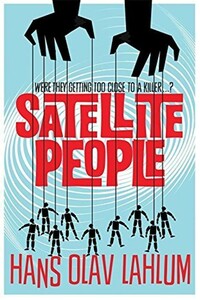The Catalyst Killing | страница 55
I therefore went straight from the refectory to the history department. Professor Johannes Heftye was, as luck would have it, alone in his office and said straight away he would be happy to talk to me. He was a grey-haired, grey-bearded and well-dressed man in his sixties, with the Second World War as his speciality. He had also once been a Communist Party politician.
The professor’s memory was impressive, as far as I could tell. He immediately remembered not only Falko Reinhardt, but details about his unfinished thesis and the last supervision he had had with him. The thesis was about an NS network from the Second World War, a subject that both the student and supervisor thought was fascinating and important. Falko had called the professor out of the blue one evening during the holidays and asked if he could get guidance as soon as possible about some sensational new findings.
Professor Heftye’s curiosity was immediately piqued and they had met here at the university on 2 August – three days before Falko Reinhardt’s disappearance. Falko had been unusually excited and said that he had discovered things that might indicate that parts of the network were still active. He had then added in a hushed voice that it looked as though some of them were discussing options for a major offensive of some sort.
His supervisor got the impression that this might be an assassination or sabotage of some kind, but the usually so self-assured Falko Reinhardt was uncharacteristically vague about what kind of plans they might have and when it might happen. When, in addition, Falko Reinhardt did not want to say where he had got the information, his supervisor asked him to think about it and check all the information again, then come back when he had more to report.
Falko had explained that one of the sources made things a bit complicated, but assured the professor that this was something really big. He had seemed uneasy, almost frightened, in a way that his supervisor had never seen before. On his way out, Falko had said in a quiet voice that he now seriously feared for his own safety. The professor had asked if he was talking about the Nazi network. Falko had replied that the right-wing extremists were a possible danger, but with a self-deprecating smile he had added that he no longer felt safe with left-wing radicals either.
And they were the last words he had heard Falko Reinhardt say, the professor remarked gloomily as he puffed on his pipe. He had more or less dismissed the comment about left-wing radicals as a joke. But he regretted not taking the information about the Nazi network more seriously, and still believed that there had to be some kind of connection with Falko Reinhardt’s disappearance. He had, without much joy, tried to explain this to the rather unappealing young detective inspector who investigated the disappearance, he added.




